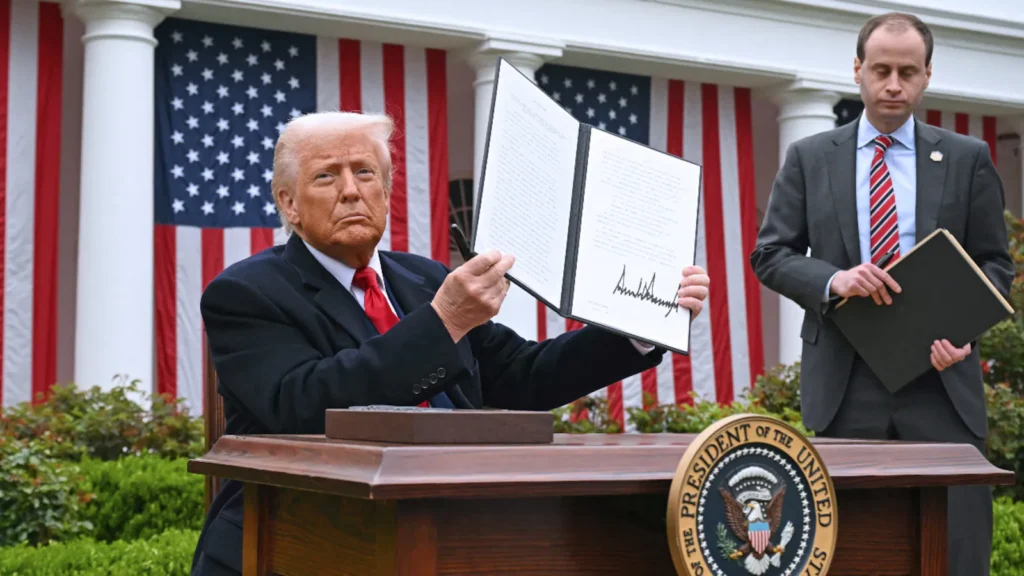The Swiss government has reaffirmed its commitment to international law and free trade after US President Donald Trump imposed higher tariffs on Swiss imports compared to those from the European Union and the United Kingdom. The decision, announced as part of a major trade policy shift, has sparked concern in Switzerland, a country heavily reliant on exports.
Switzerland Faces Steeper Tariffs Than EU and UK
In his latest trade announcement, Trump revealed that the United States would impose a 31% tariff on Swiss imports, significantly higher than the 20% rate applied to the EU and the 10% tariff on British goods. This disparity has raised questions about the reasoning behind targeting Switzerland more aggressively than its European counterparts.
Swiss President Karin Keller-Sutter responded swiftly, posting a statement on X (formerly Twitter) acknowledging the US decision and assuring that Switzerland would determine its next course of action.
“The country’s long-term economic interests are paramount. Adherence to international law and free trade remain core values,” Keller-Sutter stated, underscoring Switzerland’s commitment to global trade norms.
US-Switzerland Economic Ties at a Crossroads
The United States is Switzerland’s largest export market, making the tariff increase particularly significant. Switzerland has long highlighted its economic contributions to the US, positioning itself as a key foreign investor. In fact, Switzerland ranks as the sixth-largest foreign investor in the US, a status that Swiss officials had hoped would help shield the country from aggressive trade measures.
However, the agricultural sector remains a sensitive issue in US-Swiss trade relations. While Switzerland has eliminated industrial tariffs, its agriculture sector remains highly subsidized, ranking among the most protected in the Organisation for Economic Cooperation and Development (OECD). Analysts suggest that agriculture could be a key sticking point in US demands for greater market access.
What Comes Next?
With these new tariffs in place, Switzerland will now have to evaluate its response. The government may engage in trade negotiations with the US to seek relief or explore retaliatory measures. Meanwhile, Swiss exporters will have to adjust their strategies to navigate the increased cost of doing business with the US.
As global trade tensions continue to escalate, Switzerland’s response to Trump’s tariff policies will be closely watched by economic analysts and international trade partners alike. Whether Switzerland chooses diplomatic negotiations or alternative trade strategies, its commitment to international trade norms and economic stability remains unwavering.
For more news, subscribe to questeuro.com

More Stories
Public Debt and Trade Tensions Weaken UK Economic Growth, OECD Says
Shocking Pay Gap: Czech Workers Earn Thousands Less Than EU Average Despite Economic Growth!
Poland Seeks French Nuclear Deployment; UK to Ramp Up Domestic Weapons Production